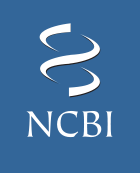Tisone G, Orlando G, Cardillo A, Palmieri G, Manzia TM, Baiocchi L, Lionetti R, Anselmo A, Toti L, Angelico M
BACKGROUND/AIMS: HCV-related disease recurrence progresses rapidly after liver transplantation. We hypothesised that withdrawal of immunosuppression might favourably impact on disease progression. METHODS: Weaning off immunosuppression was attempted in 34 HCV-RNA positive patients (mean age 62+/-6.4 years) transplanted 63.5+/-20.1 months earlier, under cyclosporine A monotherapy. Patients were followed for 3 years including yearly protocol liver biopsies. Primary endpoints were feasibility of weaning off immunosuppression and its impact on disease progression. Secondary endpoint was to identify predictors of an immunosuppression-free state and fibrosis progression. RESULTS: Complete and permanent immunosuppression withdrawal was achieved in 8 patients (23.4%), whereas 14 (41.2%) developed rejection within eight months despite an initial response and 12 (35.2%) rejected during tapering. After a mean follow-up 45.5+/-5.8 months weaned patients showed stabilisation/improvement of histological fibrosis (P<0.01), lower necro-inflammation (P<0.02) and improved liver function (P<0.05) compared to weaning-intolerants. Multiple logistic regression identified low blood cyclosporine A trough levels during the first post-transplant week (P=0.004) and initial steroid-free immunosuppression (P<0.008) as independent predictors of sustained weaning. Achievement of immunosoppression freedom (P=0.02) and baseline staging score (P<0.0001) were independently associated with stabilisation/improvement of histological fibrosis. CONCLUSIONS: Reconstitution of immune-competence in the host improves the natural history of HCV recurrence in the graft.
14/02/2006
16473433
Journal of hepatology (
IF: 20.582 /
Quartile: 1)
WOS Cites: 131
SemanticScholar Cites: 160
SemanticScholar Citation Velocity: 0
SemanticScholar Influential Citation Count: 3






